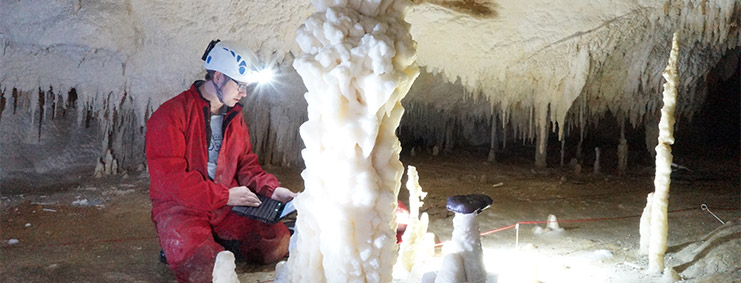Research & Enterprise Waikato
We work with both University researchers and external partners, including government, industry and community organisations.
We endeavour to extend research capability and broaden partnership opportunities that foster collaborative research, the implementation of research findings, and knowledge and technology transfer.

Our services
Learn more about our research support services.

Ethics committees
Ethics approvals: information and forms.

Horizon Europe
Collaborate with the University of Waikato's researchers for fresh insights, data and expertise.

Info for staff
UOW researchers: Find funding info.
Research grants take many forms

Eco-index
Dr Kiri Joy Wallace, Te Pūtahi Rangahau Taiao (Environmental Research Institute), co-leads the Eco-index, part of the Biological Heritage National Science Challenge. This programme connects biodiversity investment to its outcomes for nature, to whakamana (empower) better native biodiversity management and restoration across Aotearoa.

International collaborations
Rutherford Discovery Fellow A/Prof Adam Hartland (School of Science) received a RISE award funded by the European Commission and the Royal Society of New Zealand to exchange with Cambridge, Potsdam and Mainz University staff on research to develop novel, quantitative proxies of past climate using speleothems (cave carbonates).

Radiocarbon Dating Laboratory
A/Prof Fiona Petchey, from the University's Radiocarbon Dating Laboratory, is a leading expert in bone and shell dating. Her unique combination of specialised archaeology and radiocarbon dating expertise has attracted multiple research contracts from the Marsden Fund and the Australian Research Council.

Advanced Research Project Grant
Prof Holly Thorpe and Prof Belinda Wheaton (Faculty of Health) are the first New Zealand-based researchers to receive a prestigious Advanced Research Project Grant from the International Olympic Committee to explore youth perceptions of the Olympic Games, informing decision-making about new Olympic sports, specifically action sports.